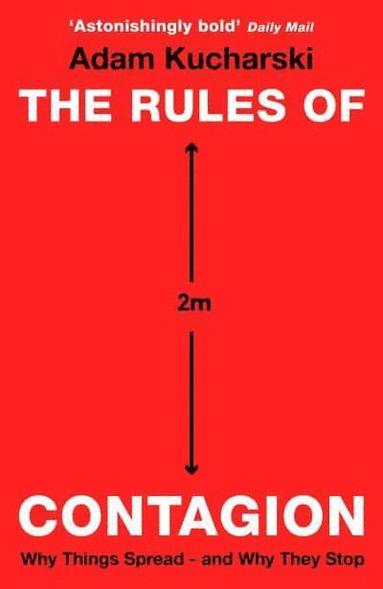
Fler böcker inom
- Format
- B Format Paperback
- Språk
- Engelska
- Antal sidor
- 352
- Utgivningsdatum
- 2021-01-28
- Förlag
- Profile Books Ltd
- Dimensioner
- 197 x 128 x 22 mm
- Vikt
- ISBN
- 9781788160209
- 288 g
Rules of Contagion
Why Things Spread - and Why They Stop
B Format Paperback,
Engelska, 2021-01-28
121
- Skickas från oss inom 2-5 vardagar.
- Fri frakt över 249 kr för privatkunder i Sverige.
Finns även som
Passar bra ihop
De som köpt den här boken har ofta också köpt Peak Human av Johan Norberg (häftad).
Köp båda 2 för 290 krKundrecensioner
Fler böcker av Adam Kucharski
-
Proof
Adam Kucharski
-
Smitta : om virus, våld, finanskriser och fake news
Adam Kucharski
-
Perfect Bet
Adam Kucharski
-
What's Next?
Jim Al-Khalili, Philip Ball, Gaia Vince, Adam Kucharski, Aarathi Prasad
Övrig information
Adam Kucharski is an associate professor at the London School of Hygiene and Tropical Medicine, working on global outbreaks such as the Ebola epidemic and the Zika virus. He is a TED fellow and winner of the 2016 Rosalind Franklin Award Lecture and the 2012 Wellcome Trust Science Writing Prize. He has written for the Observer, Financial Times, Scientific American, and New Statesman. He is the author of The Perfect Bet: How Science and Maths Are Taking the Luck Out of Gambling.
Du kanske gillar
-
Peak Human
Johan Norberg
Inbunden


